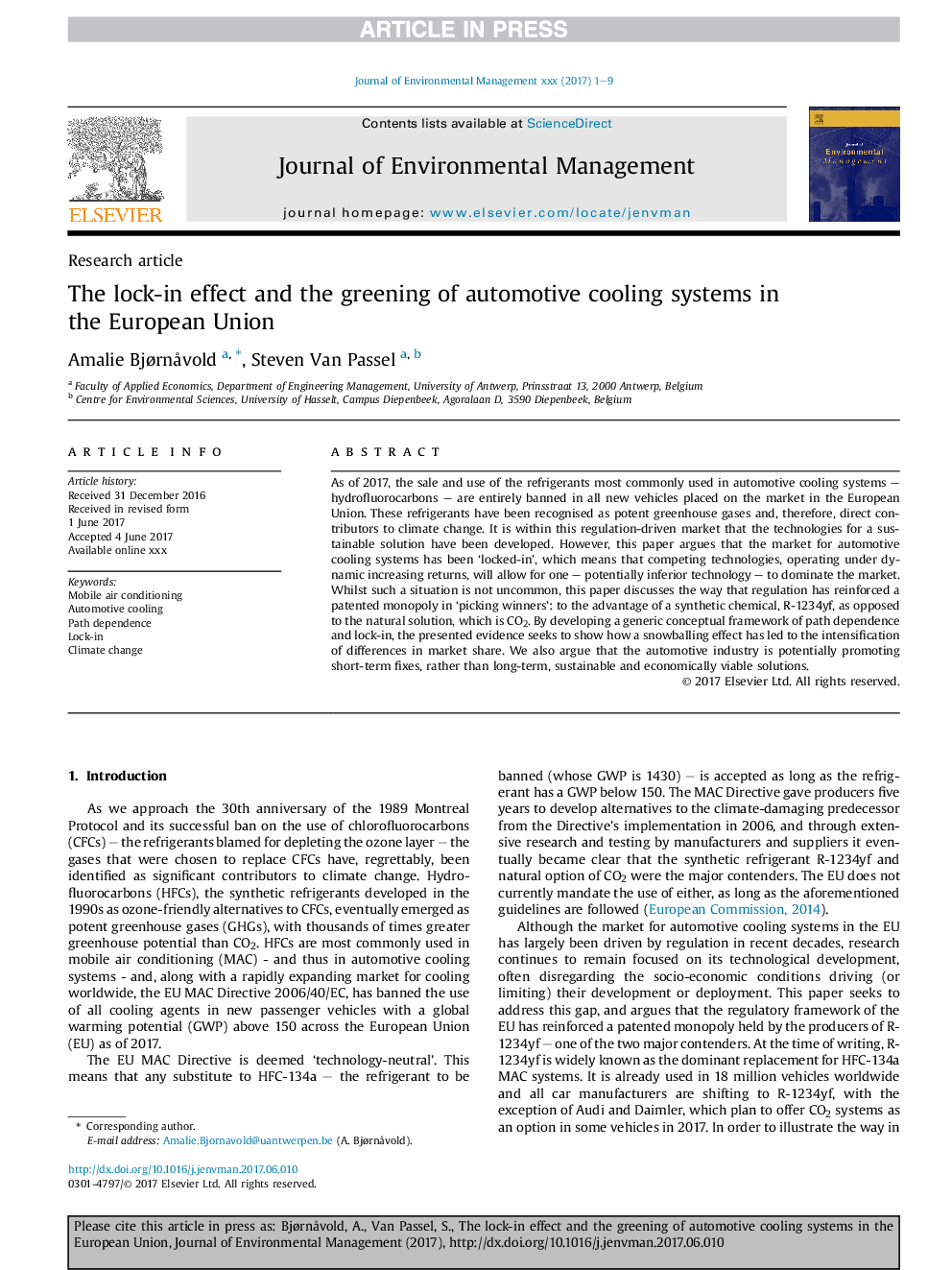| Article ID | Journal | Published Year | Pages | File Type |
|---|---|---|---|---|
| 5116397 | Journal of Environmental Management | 2017 | 9 Pages |
Abstract
As of 2017, the sale and use of the refrigerants most commonly used in automotive cooling systems - hydrofluorocarbons - are entirely banned in all new vehicles placed on the market in the European Union. These refrigerants have been recognised as potent greenhouse gases and, therefore, direct contributors to climate change. It is within this regulation-driven market that the technologies for a sustainable solution have been developed. However, this paper argues that the market for automotive cooling systems has been 'locked-in', which means that competing technologies, operating under dynamic increasing returns, will allow for one - potentially inferior technology - to dominate the market. Whilst such a situation is not uncommon, this paper discusses the way that regulation has reinforced a patented monopoly in 'picking winners': to the advantage of a synthetic chemical, R-1234yf, as opposed to the natural solution, which is CO2. By developing a generic conceptual framework of path dependence and lock-in, the presented evidence seeks to show how a snowballing effect has led to the intensification of differences in market share. We also argue that the automotive industry is potentially promoting short-term fixes, rather than long-term, sustainable and economically viable solutions.
Keywords
Related Topics
Physical Sciences and Engineering
Energy
Renewable Energy, Sustainability and the Environment
Authors
Amalie Bjørnåvold, Steven Van Passel,
